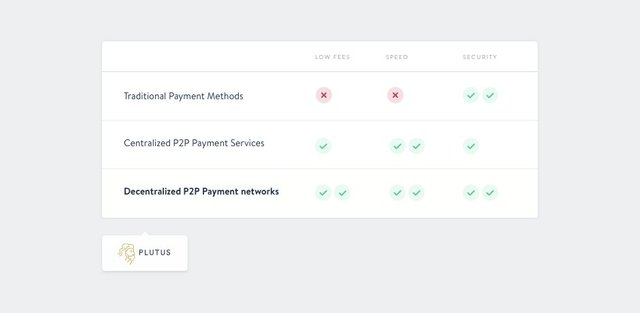What are the Benefits of Peer-to-Peer Payment Networks?
What are peer to peer transactions?
Peer-to-peer transactions (P2P) are the electronic transfer of money from one person to another often aided by a P2P payment application. P2P Payments can be sent and received via smart devices and offer a convenient alternative to traditional payment methods.
Since the likes of PayPal which popularized P2P transfers into the mainstream, the industry has grown at phenomenal rates; Statista reported $139 billion worth of payment volume in Q2 for the company, up 29% from the same period the year prior. Zelle, another leading player in the industry, expect to hit 27.4 million U.S. users this year which is a massive 73% increase.
The industries growth can largely be attributed to the prevalence of smartphones which allows people to use their phone as a wallet; up until this relatively recent technological transition people had to rely on banks or hard cash to store and transfer wealth.
The P2P payments sector has now entered yet another revolutionary wave by becoming decentralized, sparked by the likes of digital cryptocurrencies such as Bitcoin. The former COO of PayPal describes cryptocurrencies as “fulfilling the company’s original vision of a global currency” due to their use of shared ledgers rather than a centralized one.
How does it work?
Jennifer is looking to transfer £100 to her friend James in France. Similarly, Linda is looking to send £100 worth of Euros to her friend Luke in the UK.
If they are all participants of the same P2P platform, the system will match everyone and ensure the funds are transferred smoothly. In essence, Jennifer’s £100 goes to Luke and Linda’s £100 worth of Euros goes to James. This effectively means if enough people participated, money would never have to leave the system. A payment would become just a database entry, crediting one account and debiting another. This system comes with a huge number of benefits over traditional transaction methods.

What are the benefits?
Low Fees
People can experience several types of fees transferring money internationally, the largest being transfer fees and exchange rates.
Low transfer fees are a massively attractive proposition for users. Traditional international payments involve expensive processing and service costs due to the number of intermediary banks, brokers and middle men involved. A peer-to-peer infrastructure however avoids all of this as the payments are made directly between two users. While banks typically charge an extortionate rate of around 5%, P2P service applications cut this down to between 0.5% and 1.5%. Cryptocurrency rates vary but are generally even cheaper with the proceeds going towards miners for validating the transaction.
Users can save further as money transfer services usually offer better exchange rates than banks who save their best rates for high spending customers such as large corporations, governments and institutions.
Ease of use & Convenience
In addition to this, P2P payments are incredible easy to use. Money can be sent at the click of a button with minimal effort from the user. Standard payment methods are far more inconvenient often requiring a bank/ATM trip or tedious manual input of account details.
Speed
Transferring funds internationally can also take several days for completion through traditional methods, this is a ridiculously long time in comparison to P2P services and cryptocurrencies that can achieve the same in a matter of seconds.
Security
For the most part P2P payment services are secure as the transactions are encrypted, as are bank account and credit card information. Different payment applications vary in terms of security strength but on the whole these applications are safe to use, just not to the same extent as bank transfers.
Risks
The primary reason 85% of international transactions are still made by banks is due to this lack of confidence against security and fraud; there is still a level of uncertainty when it comes to sending large volumes of money across a P2P payment service. Although not as secure as traditional methods, it is under great interest for P2P payment solutions to implement appropriate data security policies and procedures as without doing so the companies can experience massive fines. On top of this users can take personal measures to improve the security of their P2P applications such as two factor authentication and company research.
These newer cryptocurrency options however are actually even safer than bank transfers due to their use of blockchain technology which is renowned for being resistant to fraudulent activity. Additionally, the anonymity aspect means there is very little personal information that cyber-scammers can access.
The only negative associated is that on the rare occasion something may go wrong, such as sending money to an incorrect address, no one is in place to reimburse the funds. Due to their decentralized nature no middle men are in place to correct such mistakes, it is up to the recipient’s discretion to make any refunds which can be an uncomfortable prospect.
The bottom line…
Transactions have evolved from slow traditional banking payments, to centralized P2P payment services, to decentralized P2P networks. There is a reason these upcoming digital technologies are changing the landscape as the few risks associated are far outweighed by the benefits. The faster transactions, lower fees and high security of P2P systems are making for an incredibly appealing alternative that the younger generations are fully embracing.
Plutus, assisting the transformation
Plutus are enabling users to instantly convert and spend their cryptocurrencies without experiencing any fees through the use of their decentralized P2P exchange known as PlutusDEX.
Unlike centralized exchanges, the users’ funds are at no point stored in a company wallet ensuring the users are in possession of their funds at all times which is a massive deal. “If you don’t own your private keys, you don’t own your bitcoin.” With centralized exchange wallets, you are not in possession of the private keys, the exchange is. This can be a shocking realisation for many people and it should be. In 2014 the world’s largest cryptocurrency exchange service Mt. Gox, had 850,000 bitcoins belonging to both the company and customers stolen which makes the development of a peer-to-peer decentralized exchange such as PlutusDEX so advantageous.
On top of this they have wrapped it all into a user friendly Tap & Pay app which allows users to spend their converted crypto at any brick and mortar globally. Plutus is now in beta testing, take a look here: Plutus.it

Sources
https://www.cnbc.com/2018/07/12/instant-payment-is-growing-up-its-not-just-for-millennials-anymore.html
http://www.thepaymentsreview.com/a-look-at-p2p-payments
https://gendal.me/2013/11/24/a-simple-explanation-of-how-money-moves-around-the-banking-system/
https://techcrunch.com/2018/06/15/zelle-forecast-to-overtake-venmo-this-year/
https://www.investopedia.com/articles/forex/011215/key-uses-p2p-currency-exchange.asp
https://due.com/blog/risks-of-p2p-payments/
https://usethebitcoin.com/cryptocurrencies-vs-paypal-battle-future-payments/
https://www.dashforcenews.com/former-paypal-coo-cryptocurrency-fulfill-paypals-original-vision/
https://www.independent.co.uk/money/hifx-international-money-transfers/guide-to-international-money-transfers-7979362.html
https://www.statista.com/statistics/277841/paypals-total-payment-volume/#0
@plutusit, I gave you a vote!
If you follow me, I will also follow you in return!